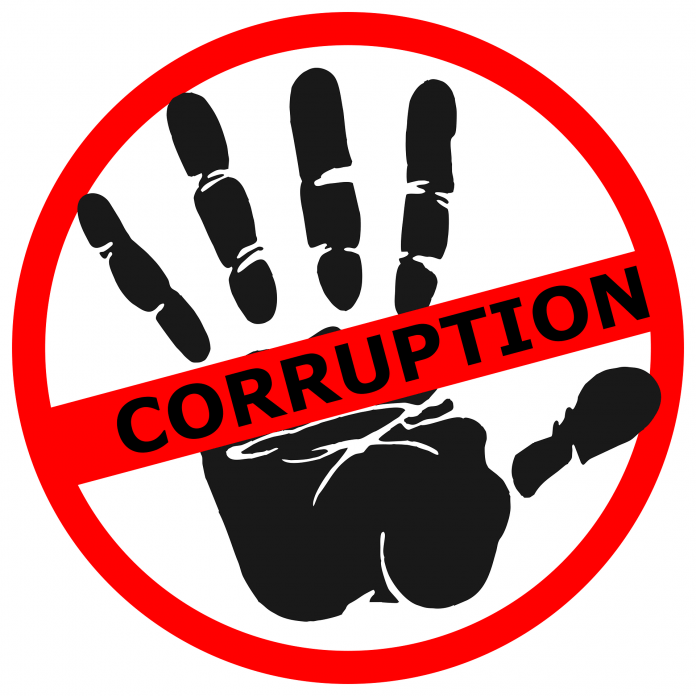
It seems that the main task of the current caretaker government and the parties of change is to „undress“ their political opponents in front of the general public. Undressing is the highlighting of the actions and practices of previous rulers, which are suspected to be linked to corrupt practices and benefits as a result of the exercise of political power.
The topic of corruption in politics has always been sensitive enough in modern societies and therefore provokes public attention. Let us remember what the rhetoric of the GERB political party focused on in 2009, when the political force first won the parliamentary elections – the focus was again on corruption. Then, in addition to the GERB political party and the OLJ political party, he also used anti-corruption rhetoric and managed to take advantage of the situation by winning representation in parliament in the then parliamentary elections.
The anti-corruption rhetoric in the election campaign in 2009 was directed against the previous government of the triple coalition in which the political parties – BSP, MRF, NMSS – participated. In the same year 2009, a video appeared in public with Ahmed Dogan, in which he stated that he distributed the portions of funding in the country. The video strengthened the validity of the appeals of the GERB and the OJU and increased the need in the public consciousness for the need to implement an anti-corruption policy. The current political forces – „There is such a people“, „Democratic Bulgaria“, „Stand up! Mafia Out!“, which are proclaimed with the label of today’s change offer something similar – to deal with previous rulers on the basis of corruption. The approach to the voters has not changed, nor has the universal enemy of the domestic political scene – the MRF – changed, only that in place of the other enemy in the face of the BSP since 2009 is now the political party GERB.
In the election campaign in 2009. GERB political party promises full „undressing“ of its political opponents (BSP and MRF) on corruption issues, and today’s change (“There is Such a People”, “Democratic Bulgaria”, “Stand up! Mafia Out!) promises the same. The tone was set by Hristo Ivanov from „Democratic Bulgaria“ with his noisy action in „Rosenets“ in front of the estate of Ahmed Dogan.
Today’s change seems to be more of an imitation of change, because there is no change in the level of rhetoric and the motives given to citizens for political participation. The only change is that today the BSP is a political party GERB in the role of a political party, and the role of an enemy of the MRF party is recognized and cannot be reconsidered. From 2009 until today, there has been a circulation of enemy roles in politics, which determines the course of political events. Today, change offers more of the same and infantilizes political debate in the same way. The other non-optimistic conclusion is that we have not made much progress since 2009, because the change based on arguments for corrupt „undressing“ of the previous political status quo after more than ten years still offers the same „undressing“.
Experience has shown that „undressing“ can generate public popularity, but it cannot solve the problem of corruption, if there is a solution to this disability at all in modern societies. But if the anti-corruption argument is dropped, then the possibilities for a dispute between opponents of political power will be narrowed and they will have to build positive arguments for their presence on the political scene. And infantilizing the debate for them is preferable because it brings some result without undue stress.
The policy of change almost always prefers to completely „undress“ its opponents in suspicion of corrupt practices, similar to porn movies, which also through undressing promise complete happiness. The most influential Italian philosopher, Giorgio Agamben, in one of the texts asks the following question:
„What would the characters of the porn we watch say if they could become viewers of our lives themselves?“
„The tragedy of any utopia is that our dreams cannot see us.“
Today, the actors on the political scene are screening a film that is in the same genre as the film screened in the 2009 election campaign when the GERB party was incorporated into our political system. The difference is that in today’s film there are more actors in the face of change, this is not the case with the images of enemies, they have not increased in number of presence.
Corrupt „undressing“ is not a tool for building a public debate on topics important to our society, because the happiness they promise is short-lived until the next circulation of the enemy in politics.
Actors of change us before and now do not pacify our nation and do not stimulate dialogue and consensus on socially important topics, but stimulate confrontation and intolerance towards their opponents, using the winning rhetoric, which was used by the previous „change„.
When will there be a change other than the change limited to dialogue – who is/ who are more corrupt or not, in my opinion is the meaningful question. Corruption is indeed one of the problems facing today’s democracy, but it cannot be used against the cure used in porn films, because it brings fleeting happiness, and a democratic state does not need „undressing„, on the contrary – it needs from dressing the political messages in a different argument, in which the personification of the corrupt enemy is absent, but the alternative policy and the ways in which it will be implemented are present.
















